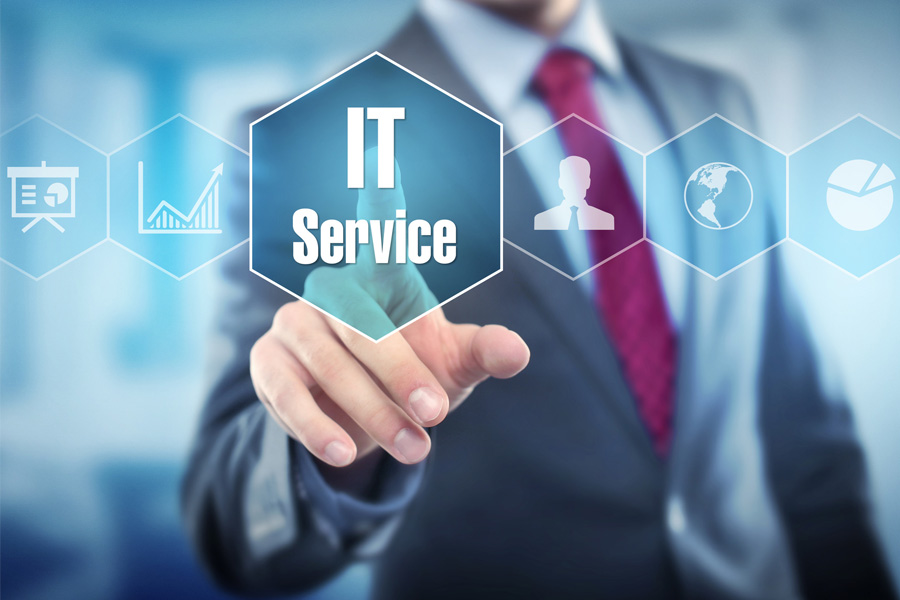Summit, New Jersey, with its vibrant small business ecosystem, proximity to New York City, and high standards for operations and security, demands more than just basic tech support. Local businesses need IT services & solutions that are strategic, reliable, scalable, and tailored to the specific challenges of the region. In this article we’ll explore what those services should include, what Summit businesses face uniquely, and how to choose a provider that delivers not just support, but competitive advantage.
The Context: Why IT Services Matter in Summit, NJ
Summit is home to a wide mix of businesses—professional services, law firms, financial offices, health clinics, small manufacturers, and local retail. Many operations here involve sensitive data, customer service expectations, and uptime demands. Because of its location near metropolitan hubs, firms in Summit often contend with high standards for responsiveness, competition, and regulatory compliance.
Meanwhile, technology demands have changed. Hybrid work has become common. Cloud adoption, cybersecurity threats, and integration of data analytics are more pressing. Furthermore, reliability matters: infrastructure issues, power disruptions, and latency (network lag) are less tolerated by clients and employees. Local businesses that attempt to keep up with patch-as-you-go IT often find themselves lagging behind in performance, security, or innovation.
Because of this, having robust IT Services & Solutions in Summit, New Jersey is not just about maintaining what you have—it’s about future-proofing your business, ensuring technology serves growth, not holding it back.
What “IT Services & Solutions” Should Encompass in Summit
When evaluating providers in Summit, here are the capabilities and qualities your IT partner should bring to the table:
First, end-to-end infrastructure management:
This includes networks, servers, desktops/laptops, mobile devices, and cloud services. The provider should be able to monitor, maintain, and integrate all parts so they work together seamlessly.
Second, proactive maintenance and reliability:
Regular updates, patching, hardware refresh, capacity planning, performance tuning. Waiting for problems to crop up leads to downtime, dissatisfied customers, and costs. A top provider will stay ahead of issues.
Third, strong cybersecurity & compliance readiness:
With data privacy laws, client expectations, and increased threats, your provider must embed security into every layer—endpoint protection, firewalls, intrusion detection, identity and access management, threat monitoring, and secure backup. Compliance with relevant regulations (HIPAA, financial regulations, etc.) should not be optional.
Fourth, business continuity and disaster recovery:
Even localized disruptions (storms, utility interruptions, network outages) can have large impacts. Your provider should have tested recovery plans, redundant systems, backup off-site, failover, and rapid restoration.
Fifth, cloud/hybrid solutions:
Many businesses will rely on some mix of local infrastructure and cloud platforms. The right IT services solution integrates these environments, ensures secure and performant data sync, and helps you use cloud where it makes sense—without creating gaps or security risks.
Sixth, responsive support and communication:
Issues will occur. When they do, you’ll want fast response, clear communication, escalation as needed, real-time visibility on tickets and status. The partner should behave as an extension of your team, not a black box.
Seventh, scalability and roadmap planning:
As your business grows—more staff, more data, more software needs—the IT systems and support should scale accordingly without requiring major overhauls. The provider should help you plan ahead, budget appropriately, and make incremental improvements rather than big costly rewrites.
Eighth, local presence & regional insight:
A Summit-area provider will understand New Jersey’s specific connectivity, regulations, environmental risks, commuting constraints, onsite support logistics, and local market norms. Local understanding translates into faster service, more practical recommendations, and better alignment with local business culture.
Unique Challenges for Summit Businesses
Certain factors in Summit make the selection of IT services more nuanced. Because the area is close to larger metro infrastructure, network congestion, outage windows, and service disruptions may be more frequent. Older office buildings may present physical challenges for cabling, cooling, power redundancy. Utility reliability, weather effects (winter storms, heat), and commuter access can impact how quickly on-site support arrives.
Data security is often more of a concern in Summit, given the prevalence of legal, financial, medical, or sensitive business operations. Clients expect high levels of protection and compliance, which means providers must maintain high standards of infrastructure and operations.
Another challenge is managing hybrid staff: some work from home, some in office. Ensuring secure, reliable connectivity, VPN or secure remote access, device management, and consistent user experience across locations is essential.
Budget constraints are always part of the equation for many small to mid-sized firms. The best providers balance cost, risk, and performance—helping firms get value without overpaying for unused capacity or unneeded features.
How to Choose the Right IT Services & Solutions Provider in Summit
When evaluating IT services providers for Summit, start with an internal assessment. Map out all your technology components, identify pain points, list critical workflows that must always work, and estimate growth (how many more users, more data, more services) in next few years. Define what matters most—uptime? security? performance? cost? customer experience?
Next, ask potential providers for references from businesses in or near Summit, ideally in similar industries. That will give you a sense of how they respond to local conditions, their reliability, and quality of service.
Request detailed proposals showing their methodologies: how they monitor, how they patch & update, how they handle backups & disaster recovery, how they secure infrastructure & comply with regulations. Ask for service level agreements (SLAs) including response times, resolution times, uptime guarantees, and what recourse you have if SLA is missed.
Evaluate their ability to offer forward-looking solutions: cloud integration, automation, analytics, virtualization. A provider who only offers “fix-it when broken” support may keep you alive, but a provider who helps you plan ahead will help you thrive.
Also check how well they communicate: do they provide dashboards? status reports? transparent updates? When things go wrong, are they responsive on phone or onsite?
Lastly, ensure the provider has a physical or local presence, or at least good logistics for onsite support. Local knowledge—of area construction norms, building access, regulatory context, local utility behavior—can avoid many surprises.
The Payoff: Why Quality IT Services & Solutions Matter
Investing in high-quality IT services in Summit yields returns in reliability, cost savings, user satisfaction, and growth potential. Downtime costs money—lost productivity, lost customer trust, and sometimes lost revenue. Security breaches can cost more, including reputational damage. If your systems scale poorly, you may waste money reworking or replacing infrastructure. On the other hand, good IT services enable smoother workflows, better decision-making (especially when systems are well instrumented), better customer service, and more confidence to adopt new technology or expand operations.
Final Thoughts
For Summit, New Jersey businesses, IT Services & Solutions in Summit, New Jersey need to be more than patchwork support—they must be comprehensive, proactive, secure, flexible, and locally aware. The right provider will deliver continuous monitoring, proactive maintenance, embedded security, cloud/hybrid integration, disaster resilience, scalability, responsive support, and regional expertise.



